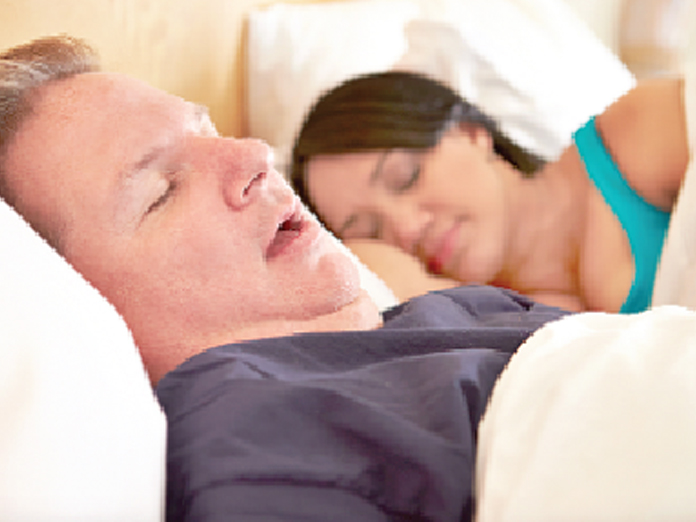Live
- MP, West MLA distribute cheques to critical patients
- Hyderabad Book Fair a big draw among book lovers
- GVMC secures 1st place in best public awareness programme category
- 39 transgenders recruited as Traffic Assistants
- Jesus’ teachings promote unity, compassion: Haryana Governor
- Special drive held on road safety
- Simultaneous elections not imminent: Purandeswari
- Vaktha helping transform individuals as leaders
- Pariksha Pe Charcha 2025
- Cops crack sensational NH-44 robbery
Just In

People with sleep apnoea struggle to remember details of memories from their own lives, which put them at risk of depression, finds a new research Sleep apnoea is a potentially serious sleep disorder in which breathing repeatedly stops and starts
Sydney : People with sleep apnoea struggle to remember details of memories from their own lives, which put them at risk of depression, finds a new research. Sleep apnoea is a potentially serious sleep disorder in which breathing repeatedly stops and starts.
The study examined how the condition affected autobiographical memory and found people with untreated obstructive sleep apnoea (OSA) suffer from memory problems in their lives. However, it is not well understood how these issues are connected with the development of the disease.
"We know that overly general autobiographical memories where people don't remember many specific details of life events -- are associated with the development of persistent depression," said Lead researcher Melinda Jackson from the RMIT University in Australia.
"Our study suggests sleep apnoea may impair the brain's capacity to either encode or consolidate certain types of life memories, which makes it hard for people to recall details from the past," said Jackson.
It is also a significant risk factor for depression so if we can better understand the neurobiological mechanisms at work, we have a chance to improve the mental health of millions of people, Jackson suggested.
For the study, the team compared 44 adults with untreated OSA to 44 healthy controls, assessing their recall of different types of autobiographical memories from their childhood, early adult life and recent life.
The results, published in the ‘Journal of the International Neuropsychology Society’, showed people with OSA had significantly 52.3 per cent more over general memories compared with 18.9 per cent of the control group.
In addition, the study also looked at the recall of semantic memory (facts and concepts from personal history or the names of school teachers) and episodic memory (events or episodes like first day of high school).
While people with OSA struggled with semantic memory, their episodic memory was preserved, findings further showed.
This is because of their fragmented sleeping patterns and that good sleep is essential for the consolidation of semantic autobiographical memory, research suggested.
The results showed the need for further studies to better understand the role of untreated OSA on memory processing, said Jackson.
OSA is estimated to affect more than 936 million people worldwide.

© 2024 Hyderabad Media House Limited/The Hans India. All rights reserved. Powered by hocalwire.com







